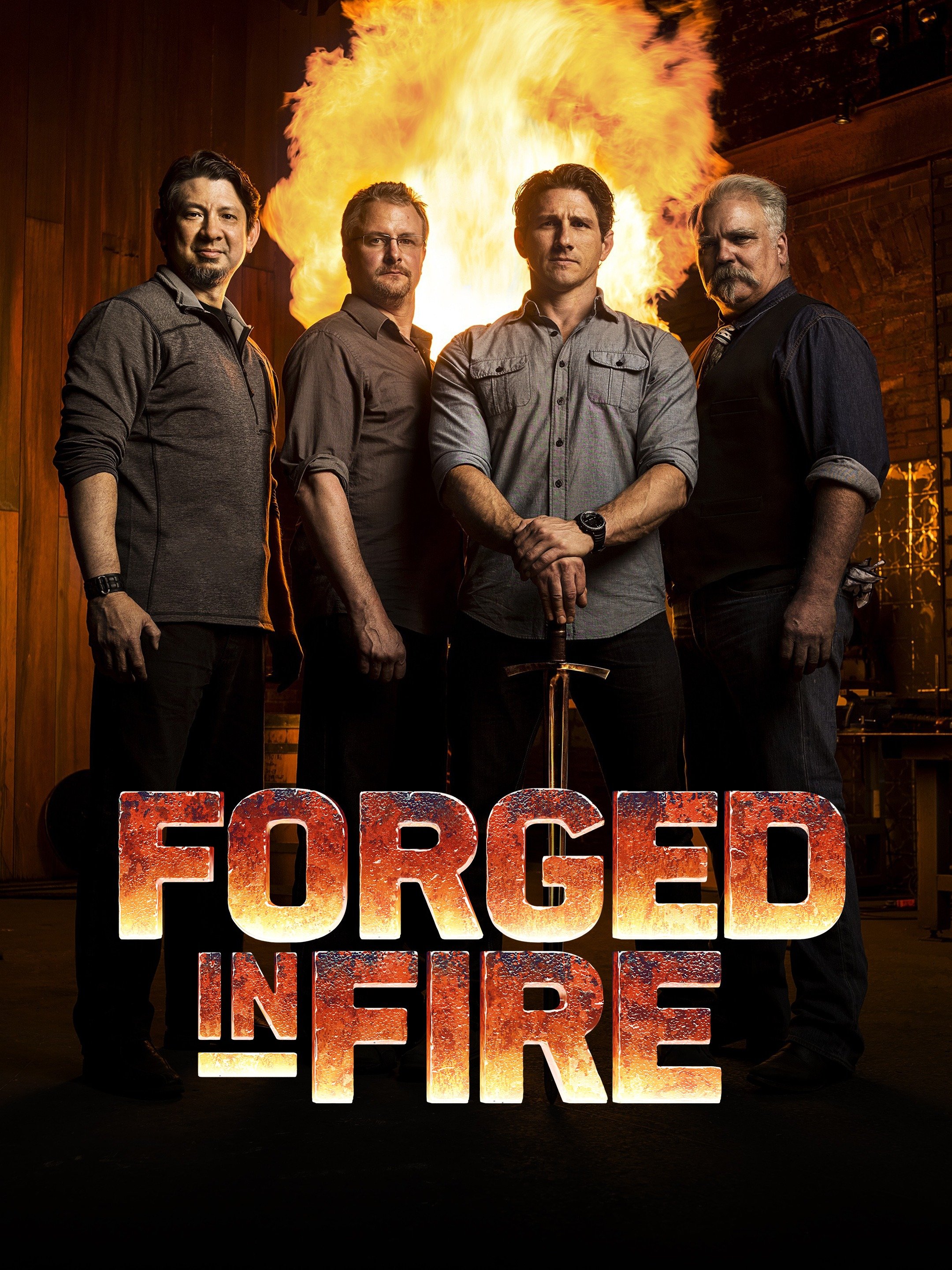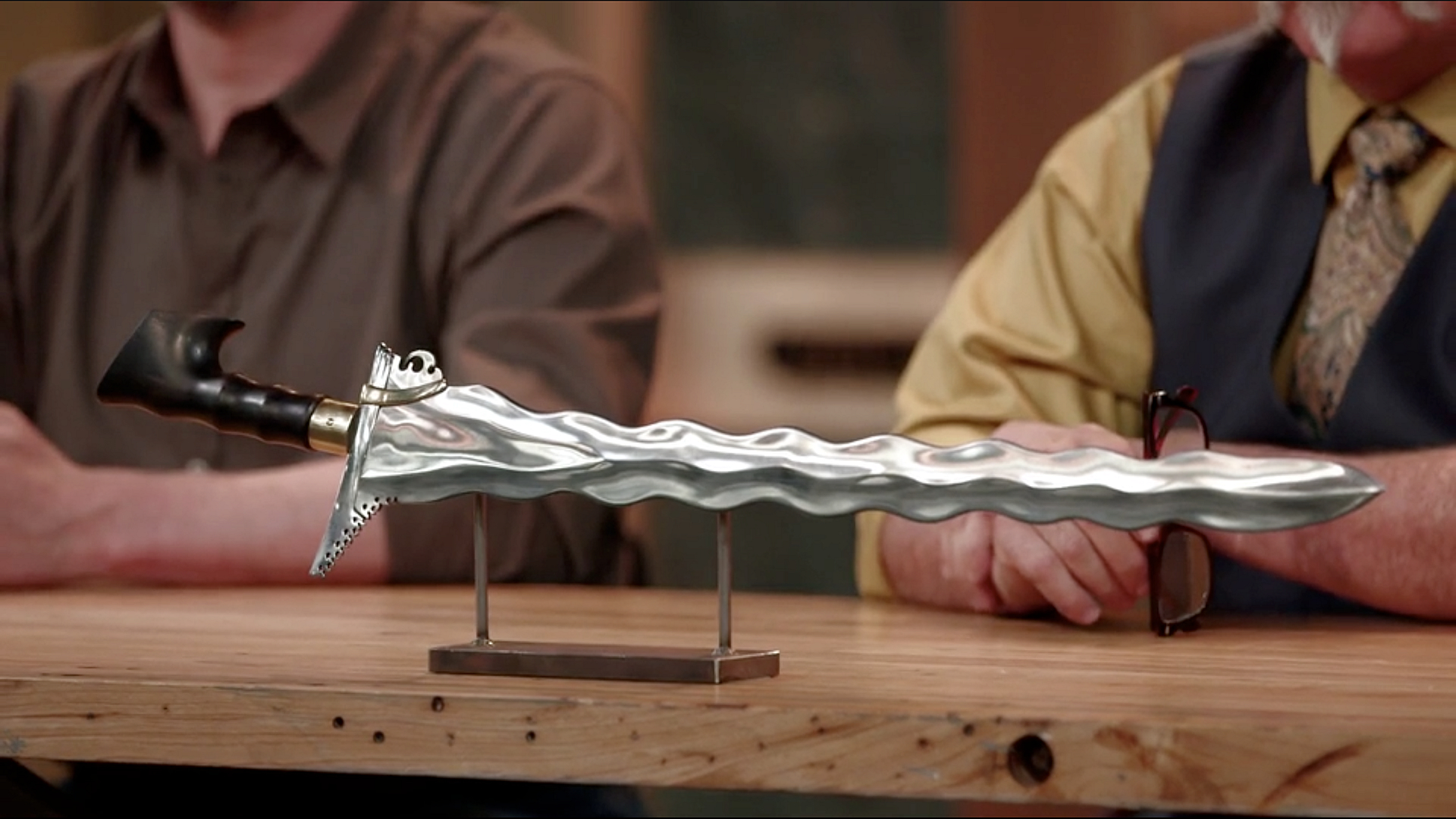Forged in Fire Serial Killer is a chilling narrative that explores the intersection between the art of blade-making and the dark psychology of serial killers. This captivating yet disturbing topic dives deep into how the skills showcased in the hit TV show "Forged in Fire" can be misused by dangerous individuals. If you're fascinated by the world of bladesmithing and crime, this article will provide an in-depth analysis of the connection between these two worlds.
While "Forged in Fire" is a popular show that celebrates the art and craftsmanship of blade-making, the concept of a serial killer using these skills adds a sinister twist. This article aims to explore the darker side of weaponry and its potential misuse, ensuring readers are informed about both the artistic and dangerous aspects of this craft.
From the historical context of weapon-making to modern-day implications, we will uncover how the skills displayed in "Forged in Fire" could be exploited by those with malicious intent. This article also emphasizes the importance of responsible craftsmanship and the ethical considerations surrounding the creation of weapons.
Read also:Big Little Brawlers A Comprehensive Guide To The Exciting World Of Miniature Combat
Table of Contents
- Introduction to Forged in Fire Serial Killer
- Biography: The Blade-Making Serial Killer
- The History of Blade-Making and Its Dark Side
- Psychology of Serial Killers and Weapon Preferences
- Forged in Fire Show: A Closer Look
- Skills Acquired from Forged in Fire
- Legal Implications of Misusing Blade-Making Skills
- Ethical Considerations in Blade-Making
- Real-Life Cases of Serial Killers and Blades
- Conclusion and Call to Action
Introduction to Forged in Fire Serial Killer
What is Forged in Fire?
The hit TV show "Forged in Fire" has captivated audiences worldwide with its portrayal of skilled bladesmiths competing to create the ultimate weapon. Contestants showcase their expertise in crafting knives, swords, and other edged weapons, demonstrating both artistry and functionality. However, the show also raises questions about the potential misuse of these skills in real life.
The concept of a "Forged in Fire serial killer" introduces a chilling scenario where individuals with advanced blade-making skills use their craft for nefarious purposes. This section explores the origins of the show and its impact on popular culture, while also highlighting the ethical dilemmas surrounding the creation of weapons.
Biography: The Blade-Making Serial Killer
While there is no specific individual known as the "Forged in Fire serial killer," this section examines the hypothetical profile of such a person. By analyzing the traits and skills of both bladesmiths and serial killers, we can better understand how these two worlds might intersect.
Data and Biodata
| Attribute | Details |
|---|---|
| Name | Hypothetical Serial Killer |
| Profession | Bladesmith |
| Skills | Expert in blade-making, metalworking, and weapon design |
| Motivation | Psychological fascination with power and control |
The History of Blade-Making and Its Dark Side
Blade-making has a rich history dating back thousands of years, with ancient civilizations mastering the art of crafting swords, daggers, and other edged weapons. While this craft has been used for protection and warfare, it has also been associated with violence and crime.
Historical records show that skilled artisans have sometimes been employed by individuals with malicious intent, leading to the creation of weapons used in acts of violence. This section delves into the historical context of blade-making and its darker applications throughout history.
Psychology of Serial Killers and Weapon Preferences
Why Do Serial Killers Choose Blades?
Serial killers often exhibit a preference for specific types of weapons, with blades being a common choice. This preference can be attributed to several factors, including the personal and intimate nature of blade attacks, as well as the psychological satisfaction derived from the act of crafting and using such weapons.
Read also:Patrick Glory The Rising Star In The World Of Gaming And Content Creation
Studies have shown that serial killers with a background in blade-making may possess a unique combination of skills and psychological traits that make them particularly dangerous. This section examines the psychological profiles of such individuals and their weapon preferences.
Forged in Fire Show: A Closer Look
The "Forged in Fire" show has become a cultural phenomenon, attracting millions of viewers who appreciate the art of blade-making. Contestants on the show demonstrate their mastery of traditional and modern techniques, creating weapons that are both beautiful and functional.
However, the show also raises questions about the responsibility of media in portraying the craft of blade-making. This section explores the show's impact on popular culture and its potential influence on individuals with malicious intent.
Skills Acquired from Forged in Fire
Key Skills Demonstrated on the Show
- Mastering traditional forging techniques
- Designing and crafting functional weapons
- Understanding the properties of different metals
- Sharpening and finishing blades to perfection
Contestants on "Forged in Fire" acquire a wide range of skills that can be applied to various aspects of blade-making. While these skills are primarily used for artistic and competitive purposes, they can also be misused by individuals with harmful intentions.
Legal Implications of Misusing Blade-Making Skills
The misuse of blade-making skills can lead to serious legal consequences, particularly when such skills are employed in criminal activities. Laws governing the possession and use of weapons vary by jurisdiction, but most countries have strict regulations in place to prevent the misuse of such skills.
This section discusses the legal frameworks surrounding weapon-making and the responsibilities of bladesmiths to ensure their craft is used responsibly. It also highlights the importance of law enforcement agencies in monitoring and preventing the misuse of these skills.
Ethical Considerations in Blade-Making
Responsible Craftsmanship
Bladesmiths have a moral obligation to ensure their craft is used for positive purposes. This involves promoting responsible craftsmanship and educating the public about the dangers of weapon misuse. Ethical considerations in blade-making include:
- Promoting the artistic and cultural aspects of blade-making
- Discouraging the creation of weapons for harmful purposes
- Supporting legislation that regulates the use of weapons
By emphasizing the ethical dimensions of blade-making, artisans can help prevent the misuse of their skills and contribute to a safer society.
Real-Life Cases of Serial Killers and Blades
Throughout history, there have been numerous cases of serial killers who have used blades as their weapon of choice. These cases highlight the dangers of weapon misuse and the importance of understanding the psychological and social factors that contribute to such behavior.
This section examines several high-profile cases involving serial killers and blades, providing insights into the motivations and methods of these dangerous individuals. By studying these cases, we can gain a better understanding of the intersection between blade-making and criminal behavior.
Conclusion and Call to Action
The concept of a "Forged in Fire serial killer" serves as a reminder of the dual nature of human creativity and the potential for skills to be misused. While the art of blade-making is a celebrated craft, it is essential to approach it with responsibility and ethical considerations in mind.
We encourage readers to engage in discussions about the ethical implications of weapon-making and to support initiatives that promote responsible craftsmanship. Leave your thoughts in the comments section below, share this article with others, and explore more content on our website to deepen your understanding of this fascinating yet complex topic.
Remember, knowledge is power, and by staying informed, we can help prevent the misuse of skills and contribute to a safer world.


